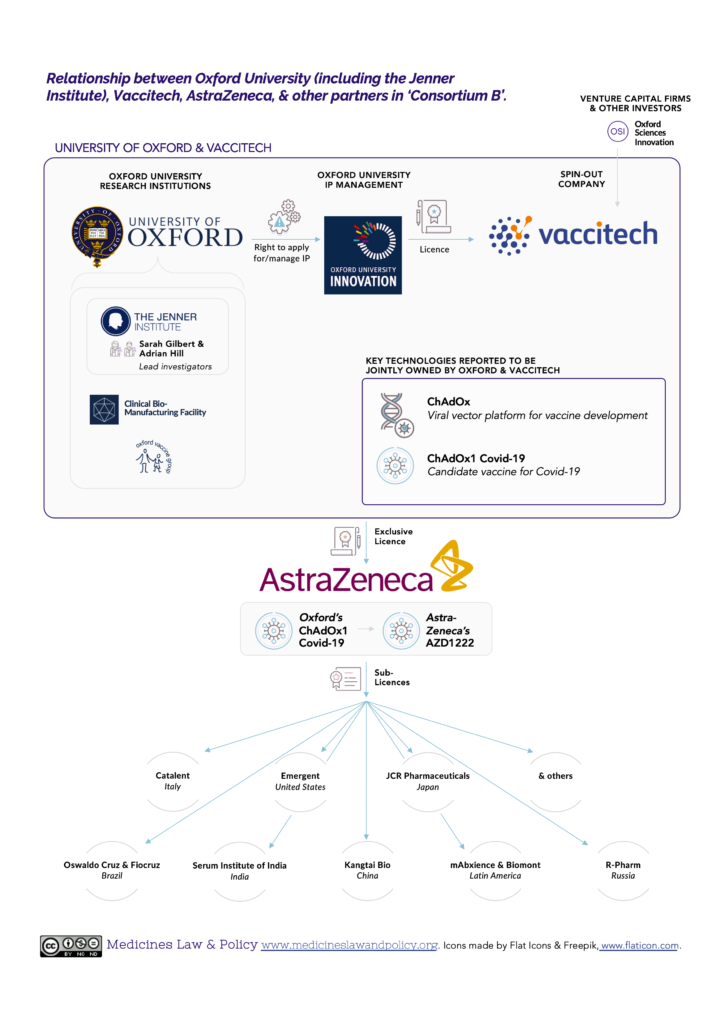The ‘Oxford / AstraZeneca’ vaccine is one of the world’s leading hopes in the race to end the Covid-19 pandemic. Its history is not as clear, though, as it may first seem. The media reporting about the vaccine tends to focus either on the very small (non-profit, academic) Jenner Institute at Oxford University, where the vaccine was first invented, or the very large (‘Big Pharma’ firm) AstraZeneca, which is now responsible for organising its (non-profit) world-wide development, manufacture and distribution. However, examining the intellectual property (IP) path of the vaccine from invention to manufacture and distribution reveals a more complex picture that involves other important actors (with for-profit perspectives).
Mindful of the very large sums of public money being used to support Covid-19 vaccine development, Medicines Law & Policy has written a new technical briefing note that contextualises the respective roles of the Jenner Institute, AstraZeneca and these other actors, so that their share of risk and (potential) reward in the project can be better understood. It also provides comments as well as raises some important questions about what might yet be done better and what lessons can be learned for the future.
To access the briefing paper, click here or on the picture below.

Christopher Garrison, MA LLM MA PhD, is a legal advisor with over 20 years of experience on intellectual property issues.